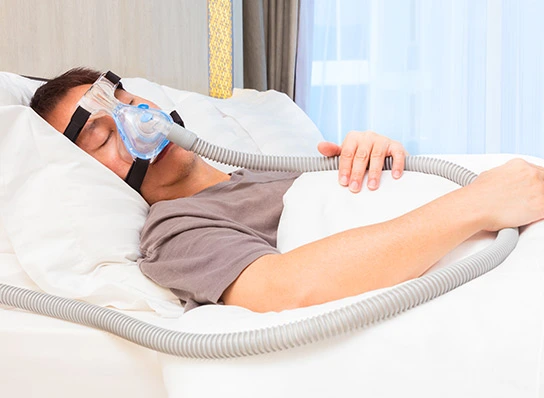Oral Appliance Therapy
Mandibular Advancement Splint (MAS) / Mandibular Advancement Device (MAD)
Ask one of our Sleep Health Practitioners if Hushd Avera Devices are a good fit for you. Visit www.goodsleepco.health to learn more about Hushd Avera Sleep Devices.

Hushd Avera Sleep Devices are easy-to-use and comfortable devices that alleviate snoring and symptoms of Obstructive Sleep Apnea.

SNORING
Snoring is a common problem that can impact your sleep and quality of life. It can also affect your partner or spouse because of the constant noise. The problem occurs when, during sleep, your tongue and throat tissues relax to narrow the airway. Snoring is the sound that is produced when air passes through this partially blocked area, causing tissues to vibrate. Snoring is a common symptom of sleep apnea. However, it can also be caused due to nasal congestion, large tonsils or obesity. Thus, opting for a sleep test at Rise Sleep Health is vital for an accurate diagnosis.


OBSTRUCTIVE SLEEP APNEA
OSA is a medical condition where the tongue and soft tissues close off the airway and stop air from entering the lungs. When this happens during sleep, the oxygen in the blood decreases, the heart starts racing, and the brain panics – causing the individual to startle awake. After a few good breaths, the cycle repeats itself all night long, making it challenging to sleep properly. The problem leads to several issues like gasping for air while sleeping, night sweats, snoring, headaches, exhaustion, anxiety, and depression. It can be treated with oral appliance therapy that uses devices to pull the tongue of the lower jaw forward. Mild to moderate sleep apnea can be treated with this therapy.
HUSHD AVERA SLEEP DEVICE SYMPTOM ALLEVIATOR
The Hushd Avera sleep device is a mandibular advancement splint (MAS) used for treating sleep apnea. It gently holds your lower jaw forward while you are sleeping. This forward position advances your tongue and helps open your airway to reduce snoring and alleviate obstructive sleep apnea symptoms. It is worn like a mouthguard over teeth and helps to reduce snoring and improve breathing to prevent the patient from gasping for air. It is used for mild to moderate OSA in adults and requires the intervention of the dentist to help it fit snugly in the mouth. It is preferred by patients who are not comfortable with CPAP machines and masks.


Consult Rise Sleep Health Professionals
Did you know snoring can be a symptom of major health risks? If you or a loved one snore, ask one of our Sleep Health Practitioners if the Hushd Avera Sleep Devices are a good fit for you. The good news is that our Sleep consultation can help you understand, screen, and treat your mild to moderate Sleep Apnea. With the use of a Sleep Apnea device, we can provide you with a comfortable and easy-to-use option for a more restful sleep. Our patient-centred approach ensures the patient receives the best possible care and treatment for a sound sleep at night.
Call Us for a Comprehensive Sleep Consultation and to Learn More About MAS Sleep Devices.



 FAQ
FAQ 
Understanding Sleep Apnea
Here are some facts about sleep apnea to increase awareness and help patients find the right treatment.

- 70% of heart attack patients have mild OSA.
- 86% of obese type 2 Diabetic patients suffer from Sleep Apnea.
- 43% of patients with mild OSA have hypertension.
- 48% of type 2 Diabetes sufferers have Sleep Apnea
- 100k car accidents annually
- 4x more at risk for stroke
- Sleep Apnea can also cause memory problems, weight gain, impotence, and headaches if not treated.
- Untreated OSA can lead to a 30% or more reduced survivability rate over the course of 20 years.
- Drowsy driving is responsible for, at the very least, 100,000 car accidents, 40,000 injuries, and 1,550 deaths per year.
- Approximately 38,000 deaths occur on an annual basis related to cardiovascular problems that, in one way or another, are connected to Sleep Apnea. These problems include high blood pressure, hypertension and stroke, among others.
- Inconsistent breathing during sleep
- Snoring
- Hypertension
- Depression
- Obesity
- Gasping, choking, or coughing during sleep
- Extreme sleepiness throughout the day
- Lethargic feelings
- Morning headaches
- Lack of interest in hobbies
- Dry mouth and/or sore throat in the morning
- Irregular heartbeat
- Trouble concentrating or remembering things
